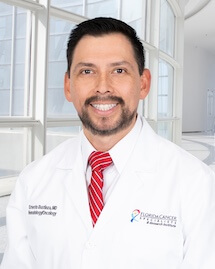Author(s): Petros Christopoulos, MD, PhD1,2; Michal Harel, PhD3; Kimberly McGregor, MD3; Yehuda Brody, PhD3; Igor Puzanov, MD4,5; Jair Bar, MD, PhD6,7; Yehonatan Elon, PhD3; Itamar Sela, PhD3; Ben Yellin, PhD3; Coren Lahav, MSc3; Shani Raveh, PhD3; Anat Reiner-Benaim, PhD8; Niels Reinmuth, MD9,10; Hovav Nechushtan, MD11; David Farrugia, MD12; Ernesto Bustinza-Linares, MD13; Yanyan Lou, MD14; Raya Leibowitz, MD, PhD15; Iris Kamer, PhD6; Alona Zer Kuch, MD16; Mor Moskovitz, MD17; Adva Levy-Barda, PhD18; Ina Koch, PhD9; Michal Lotem, MD19; Rivka Katzenelson, MD20; Abed Agbarya, MD21; Gillian Price, MD22; Helen Cheley, RN23; Mahmoud Abu-Amna, MD24; Tom Geldart, MD25; Maya Gottfried, MD26; Ella Tepper, MD27; Andreas Polychronis, MD28; Ido Wolf, MD29; Adam P. Dicker, MD, PhD30; David P. Carbone, MD31; David R. Gandara, MD32
PURPOSE
Current guidelines for the management of metastatic non–small cell lung cancer (NSCLC) without driver mutations recommend checkpoint immunotherapy with PD-1/PD-L1 inhibitors, either alone or in combination with chemotherapy. This approach fails to account for individual patient variability and host immune factors and often results in less-than-ideal outcomes. To address the limitations of the current guidelines, we developed and subsequently blindly validated a machine learning algorithm using pretreatment plasma proteomic profiles for personalized treatment decisions.
PATIENTS AND METHODS
We conducted a multicenter observational trial (ClinicalTrials.gov identifier: NCT04056247) of patients undergoing PD-1/PD-L1 inhibitor–based therapy (n = 540) and an additional patient cohort receiving chemotherapy (n = 85) who consented to pretreatment plasma and clinical data collection. Plasma proteome profiling was performed using SomaScan Assay v4.1.
RESULTS
Our test demonstrates a strong association between model output and clinical benefit (CB) from PD-1/PD-L1 inhibitor–based treatments, evidenced by high concordance between predicted and observed CB (R2 = 0.98, P < .001). The test categorizes patients as either PROphet-positive or PROphet-negative and further stratifies patient outcomes beyond PD-L1 expression levels. The test successfully differentiates between PROphet-negative patients exhibiting high tumor PD-L1 levels (≥50%) who have enhanced overall survival when treated with a combination of immunotherapy and chemotherapy compared with immunotherapy alone (hazard ratio [HR], 0.23 [95% CI, 0.1 to 0.51], P = .0003). By contrast, PROphet-positive patients show comparable outcomes when treated with immunotherapy alone or in combination with chemotherapy (HR, 0.78 [95% CI, 0.42 to 1.44], P = .424).
CONCLUSION
Plasma proteome–based testing of individual patients, in combination with standard PD-L1 testing, distinguishes patient subsets with distinct differences in outcomes from PD-1/PD-L1 inhibitor–based therapies. These data suggest that this approach can improve the precision of first-line treatment for metastatic NSCLC.
Author Affiliations
1Department of Thoracic Oncology, Thoraxklinik at Heidelberg University Hospital and National Center for Tumor Diseases, Heidelberg, Germany; 2Translational Lung Research Center Heidelberg (TLRC-H), member of the German Center for Lung Research (DZL), Heidelberg, Germany; 3OncoHost Ltd, Binyamina, Israel; 4Department of Medicine, Roswell Park Comprehensive Cancer Center, Buffalo, NY; 5The Roswell Park Comprehensive Cancer Center Data Bank and BioRepository; 6Institute of Oncology, Chaim Sheba Medical Center, Tel Hashomer, Israel; 7Sackler Faculty of Medicine, Tel Aviv University, Tel-Aviv, Israel; 8Department of Epidemiology, Biostatistics and Community Health Sciences, School of Public Health, Faculty of Health Sciences, Ben-Gurion University of the Negev, Beer-Sheva, Israel; 9Asklepios Kliniken GmbH, Asklepios Fachkliniken Muenchen, Gauting, Germany; 10The German Center for Lung Research (DZL), Munich-Gauting, Germany; 11Oncology Laboratory, Sharett Institute of Oncology, Hadassah-Hebrew University Medical Center, Jerusalem, Israel; 12Cheltenham General Hospital, Cheltenham, United Kingdom; 13University of Central Florida, FL; 14Division of Hematology and Oncology, Mayo Clinic School of Medicine, Jacksonville, FL; 15Shamir Medical Center, Oncology Institute, Zerifin, Israel; 16Department of Oncology, Rambam Medical Center, Haifa, Israel; 17Thoracic Cancer Service, Davidoff Cancer Center, Beilinson, Petah Tikva, Israel; 18Biobank, Department of Pathology, Rabin Medical Center, Beilinson Campus, Petah Tikva, Israel; 19Center for Melanoma and Cancer Immunotherapy, Hadassah Hebrew University Medical Center, Sharett Institute of Oncology, Jerusalem, Israel; 20Kaplan Medical Center, Rehovot, Israel; 21Institute of Oncology, Bnai Zion Medical Center, Haifa, Israel; 22Department of Medical Oncology, Aberdeen Royal Infirmary NHS Grampian, Aberdeen, United Kingdom; 23Swansea Bay UHB; 24Oncology & Hematology Division, Cancer Center, Emek Medical Center, Afula, Israel; 25Royal Bournemouth Hospital; 26Department of Oncology, Meir Medical Center, Kfar-Saba, Israel; 27Department of Oncology, Assuta Hospital, Tel Aviv, Israel; 28Mount Vernon Cancer Centre, Northwood, United Kingdom; 29Division of Oncology, Tel-Aviv Sourasky Medical Center, Tel Aviv, Israel; 30Thomas Jefferson University, Philadelphia, PA; 31Comprehensive Cancer Center, Ohio State University, Columbus, OH; 32Division of Hematology and Oncology, University of California Davis Comprehensive Cancer Center, Sacramento, CA
